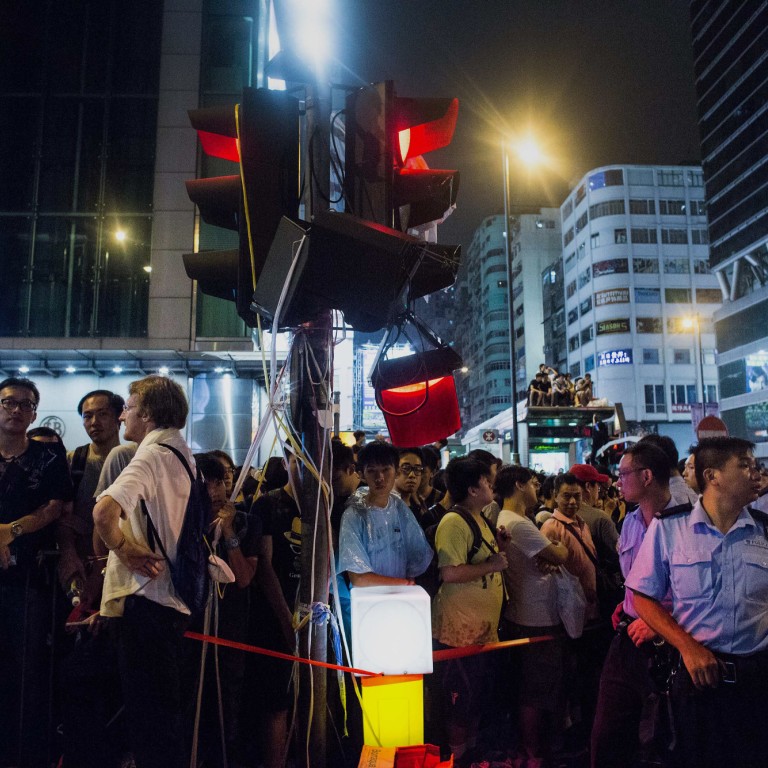
Negotiations are the only way forward for Occupy Central protesters
Stubbornness and stalling for time are no way to manage a disruptive protest. Chief Executive Leung Chun-ying's agreement to talks with student leaders to try to bridge differences was a necessary starting point.
Stubbornness and stalling for time are no way to manage a disruptive protest. Chief Executive Leung Chun-ying's agreement to talks with student leaders to try to bridge differences was a necessary starting point. Although students called off the meeting last night after accusing police of failing to protect them during angry scenes in Mong Kok, the fact that the two sides were willing to meet is a sign of good intent. Without such cooperation, there is little chance of order soon returning to our streets.
Chief Secretary Carrie Lam Cheng Yuet-ngor had been delegated by Leung to meet representatives of the Hong Kong Federation of Students, the group behind the class boycotts that sparked the protests. The federation had written to Lam offering talks, which were accepted by the chief executive as a deadline for his resignation demanded by protesters was about to expire. It dropped its call for Leung to quit, a pragmatic approach that has to be continued to narrow the gap. Although the organisation has more than 50,000 members, it does not represent all the demonstrators; they comprise a wide cross-section of society. Their aspirations are similar, though: they seek genuine democracy for Hong Kong.
But as much as there needs to be goodwill, there also has to be understanding. Nothing is to be gained from Leung's resignation, nor is Beijing going to reverse its decision on how the chief executive will be elected in 2017. The lack of leadership among the protesters makes negotiations challenging. Many Hongkongers have sympathy for the demonstrators, in part because of the heavy-handed police response to their actions last Sunday, but the continuing inconvenience to commuters and loss of business will erode acceptance; the chaos in Mong Kok yesterday showed how thin patience is wearing.
The sit-in protests outside the government headquarters in Admiralty have forced contingency measures affecting thousands of civil servants; work schedules have been disrupted and meetings postponed or cancelled. Basic services have all but ground to a halt and main roads are blocked; it is a nuisance, a frustration and, if prolonged, a danger. People who use these tactics are ignoring our city's rules and laws.
Paralysing Hong Kong is no way to achieve goals. Negotiations are the only way forward. The talks have to be widened beyond students to other groups. It's regrettable that the meeting was called off, but we still believe that only through dialogue can consensus be built and our city move forward.

